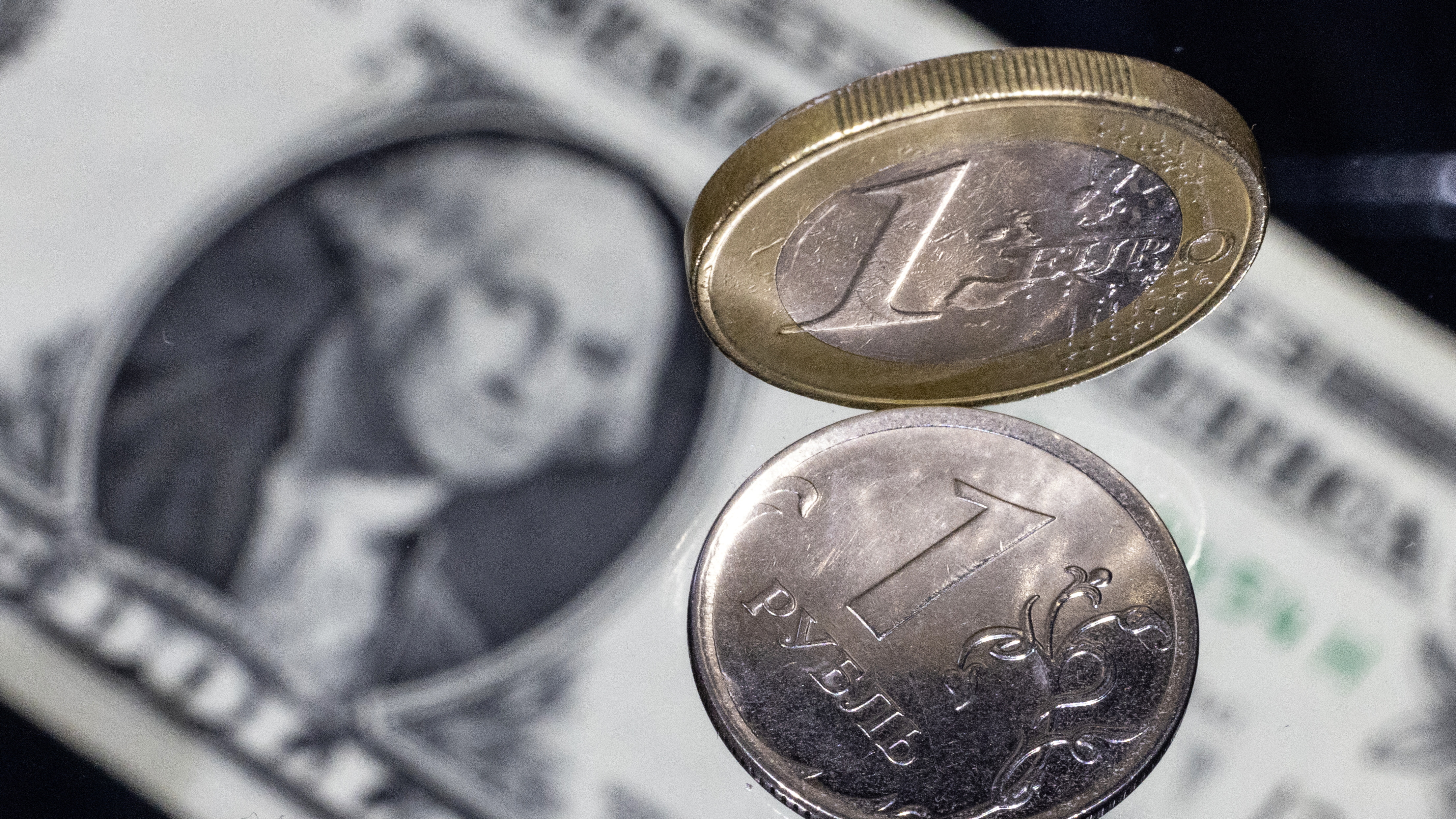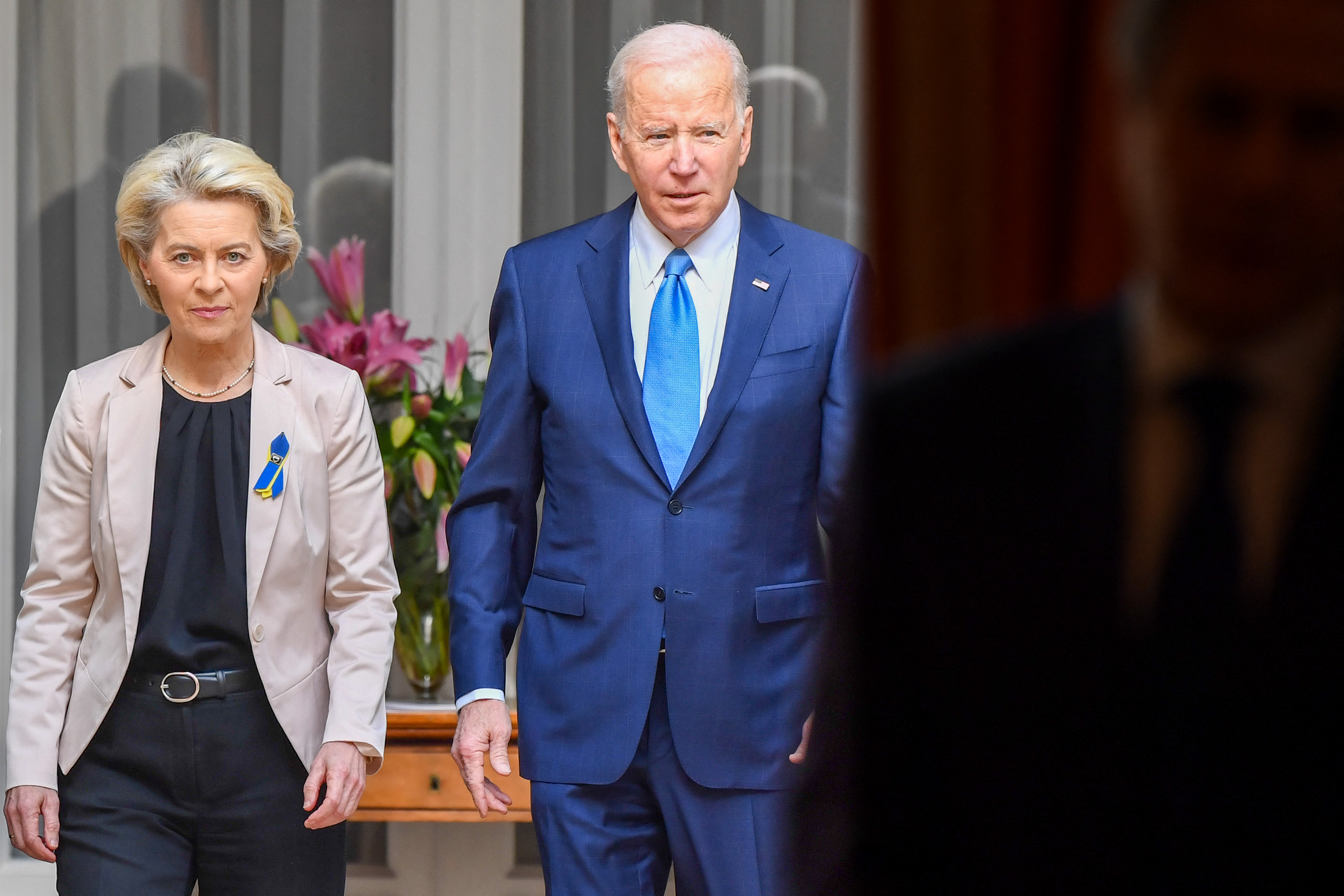
Editor's note: Andrew Korybko is a Moscow-based American political analyst. The article reflects the author's opinions and not necessarily those of CGTN.
The U.S. has aggressively attempted to reverse its declining unipolar hegemony ever since the commencement of Russia's ongoing special military operation in Ukraine. Moscow says that campaign is meant to ensure the integrity of its national security red lines among other reasons while Kyiv and its U.S.-led Western partners describe it as an illegal invasion. The U.S. just recently captured control of the EU on an anti-Russian pretext by successfully pressuring the bloc to massively sanction Russia.
America's latest attempt to reverse its declining unipolar hegemony was on full display on April 13 when U.S. Treasury Secretary Janet Yellen spoke at the Atlantic Council. She implied a reaffirmation of her country's secondary sanctions threats against China if it continues to conduct business with Russia in spite of the illegal economic restrictions that the U.S. and its partners imposed against that country.
Yellen said that "going forward, it will be increasingly difficult to separate economic issues from broader considerations of national interest, including national security." The Treasury Secretary ominously added that "The world's attitude towards China and its willingness to embrace further economic integration may well be affected by China's reaction to our call for resolute action on Russia." These statements suggest that the U.S. will pressure its partners to distance themselves from China if it trades with Russia.
All the more audaciously, Yellen claimed that this internationally illegal approach that's contrary to the UN Charter is supposedly driven by America's values. According to her, "We are acting in support of our principles – our opposition to aggression, to widespread violence against civilians and in alignment with our commitment to a rules-based global order that protects peace and prosperity." Yellen's reference to the so-called "rules-based global order" reveals her country's true intentions.
This phrase is a euphemism for disguising America's aggressive attempts to reverse its declining unipolar hegemony by illegally threatening other countries in myriad ways, economic and financial in this particular example against China, on the false basis of upholding subjectively defined "rules."
These "rules," it must be mentioned, don't objectively exist since they aren't consistent with the UN Charter but are invented on the fly in order to "justify" whatever the U.S. needs to do to advance its interests.
There's no other way to describe these secondary sanctions threats and the completely fabricated pretext upon which they're being made against China as anything other than financial hegemony.
The U.S. used to control the global economic system following the end of what many have nowadays taken to calling the Cold War after the Soviet Union's dissolution in 1991. That brief period of unipolarity began to fade after the 2003 invasion of Iraq and became obvious after the 2008 financial crisis.

U.S. President Joe Biden (R) and European Commission President Ursula von der Leyen hold a joint press conference in Brussels, Belgium, March 25, 2022. /IC
U.S. President Joe Biden (R) and European Commission President Ursula von der Leyen hold a joint press conference in Brussels, Belgium, March 25, 2022. /IC
The subsequent creation of the G20 showed that the U.S. no longer solely controlled the global economic system but was forced to acknowledge the rising role of others like China and the EU.
The massively self-inflicted damage that former U.S. President Donald Trump caused through his unprovoked trade war with China accelerated his country's economic and financial decline relative to all others. It was only through incumbent U.S. President Joe Biden that it reasserted its hegemony over the EU as was earlier explained.
China is now the world's second largest and most independent economy after that bloc on the other half of Eurasia voluntarily ceded its strategic sovereignty to its transatlantic partner who in reality mistreats it as a bunch of vassal states. The U.S. might be plotting to pressure that collection of countries to comply with potentially forthcoming demands to "decouple" themselves from China exactly as they just "decoupled" themselves from Russia and on a similarly false pretext of the "rules-based order."
Observers should note, however, that doing so would cause even more self-inflicted damage to EU economies than the unprecedented sanctions they just imposed on Russia or the damage that Trump was responsible for inflicting on his own economy through his failed trade war.
Nevertheless, the U.S. appears to have restored its hegemonic control over those countries as proven by them dutifully complying with its anti-Russian demands so they might no longer be acting independently.
It's impossible for the U.S. to "isolate" China's economy or inflict any major damage to it since it's much too strong, diversified, and closely integrated with the rest of the world, especially the Global South. That being the case, Yellen's secondary sanctions threats could serve the ulterior purpose of provoking an even more intensified economic crisis in the EU than the one that the bloc is dangerously approaching due to the self-inflicted damage caused by the anti-Russian sanctions that it recently imposed.
If the U.S. manages to successfully pressure those countries to economically distance themselves from China, then they'll surely plunge into the worst crisis ever, which could result in the dollar killing off its euro rival once and for all as well as bankrupting American companies' competitors in the EU.
This financial hegemony needs to be called out for what it is so that the European people can be informed of the precipice over which their American "partner" wants to push them on another anti-Russian pretext.
(If you want to contribute and have specific expertise, please contact us at opinions@cgtn.com. Follow @thouse_opinions on Twitter to discover the latest commentaries on CGTN Opinion Section.)

